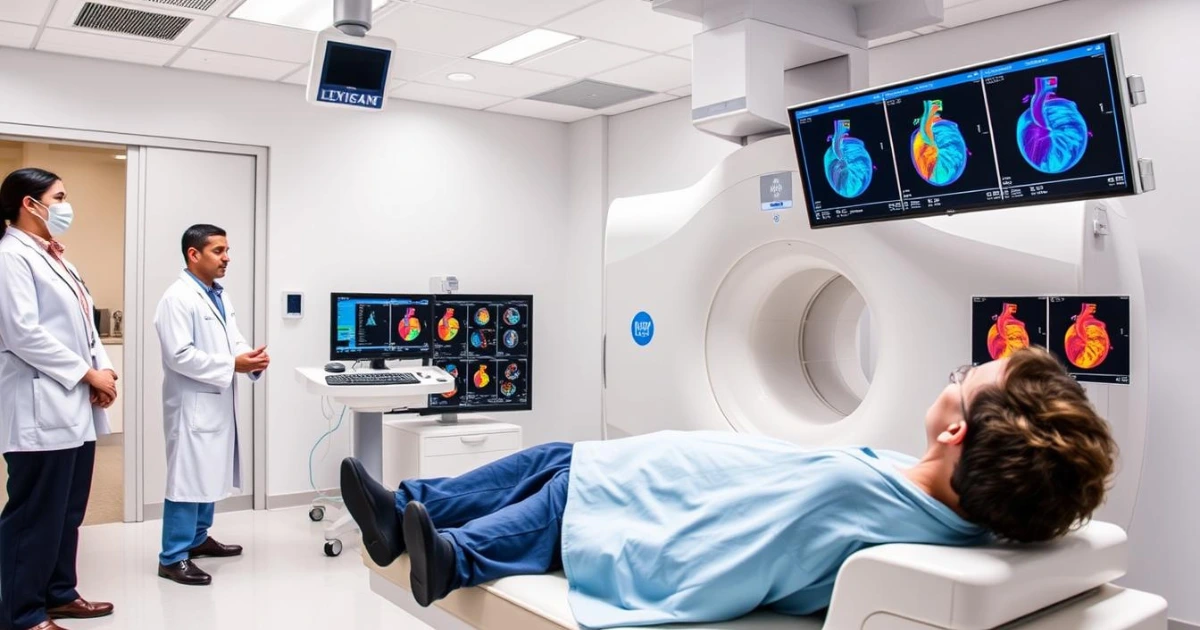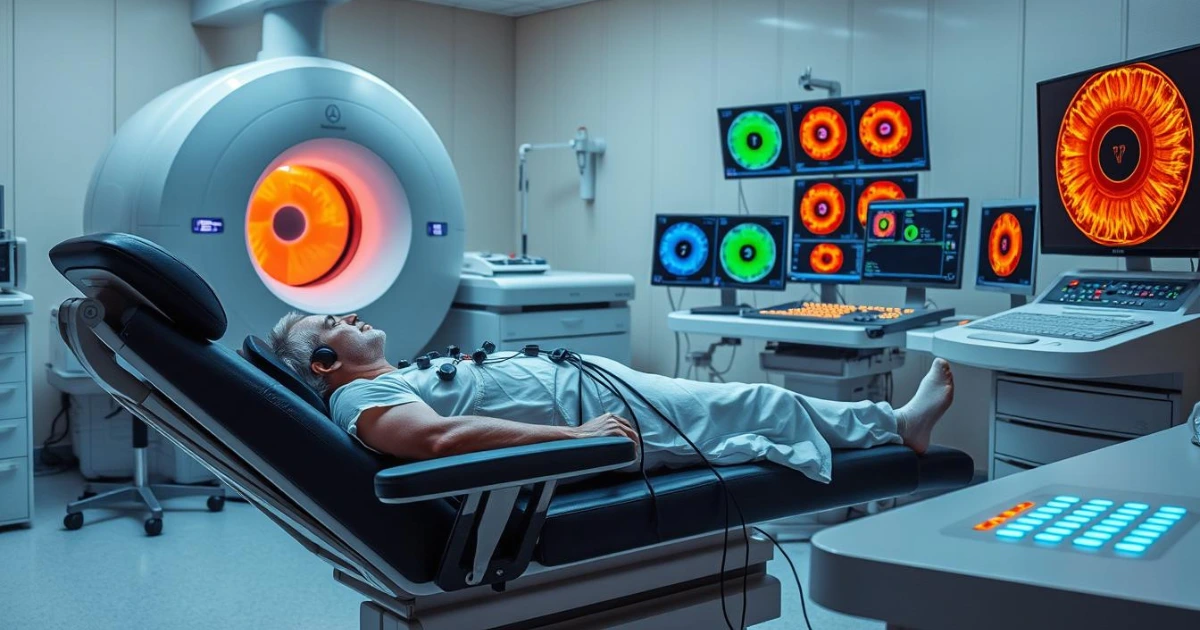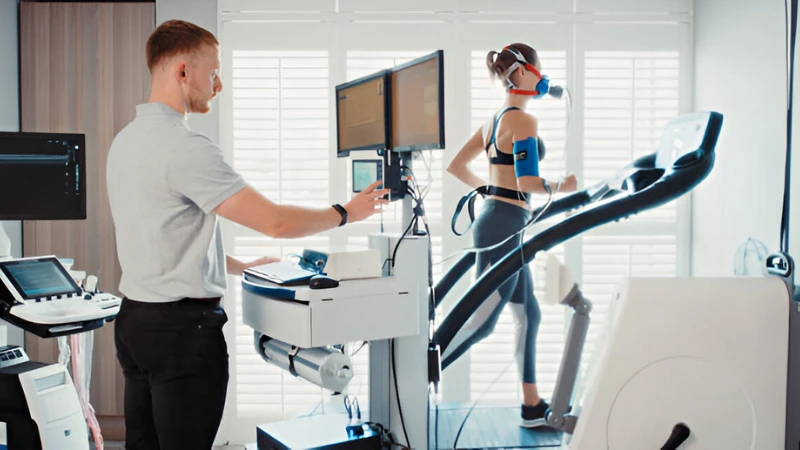How Lexiscan Scan Differs from Other Nuclear Stress Tests
Nuclear Stress Tests
If your doctor suggests a nuclear stress test for your heart health, you might wonder about your options. The Lexiscan scan is a unique choice that stands out from traditional tests. Knowing the differences can help you choose the right test for you.
Table of Contents
Nuclear stress tests are key for checking heart health. They show detailed images of blood flow and spot issues. The Lexiscan scan uses a special medicine to make the heart work hard, not exercise.
Key Takeaways
- Lexiscan scans are a type of nuclear stress test that use a vasodilator medication to stimulate the heart, rather than physical exercise.
- Lexiscan scans may be recommended for patients who are unable to exercise or have certain medical conditions that make traditional stress tests challenging.
- Lexiscan scans provide detailed images of the heart’s blood flow, allowing doctors to identify any potential blockages or areas of concern.
- Compared to other nuclear stress tests, Lexiscan scans may have fewer side effects and be more comfortable for some patients.
- Discussing the pros and cons of Lexiscan scans with your doctor can help you determine if this testing method is the best fit for your individual needs.
Understanding Nuclear Stress Tests and Their Purpose
Nuclear stress tests are key tools for checking your heart’s health. They use radioactive tracers and imaging to see how blood flows and spot heart problems. Knowing about nuclear stress tests helps you take care of your heart.
Common Indications for Nuclear Stress Testing
If you have chest pain, shortness of breath, or irregular heartbeats, your doctor might suggest a nuclear stress test. These tests are also for checking heart disease risk, especially if you have a family history or risk factors like high blood pressure or cholesterol.
How Nuclear Imaging Works in Cardiac Assessment
A small amount of radioactive tracer is injected into your blood during a nuclear stress test. This tracer goes to your heart and sends out gamma rays. A special camera catches these rays, showing how blood flows through your heart at rest and when you’re active.
Different Types of Stress Test Methods (lexiscan scan)
- Exercise Stress Test: This involves walking on a treadmill or pedaling a stationary bike while your heart rate and blood pressure are monitored.
- Pharmacological Stress Test: If you are unable to exercise, your healthcare provider may use medication to temporarily increase your heart rate and blood flow, simulating the effects of physical activity.
Both exercise and pharmacological stress tests, combined with nuclear imaging, give important insights into your heart’s health. They help your healthcare provider create a treatment plan just for you.
The Unique Features of Lexus Scan Technology
The Lexiscan scan is a standout in nuclear stress tests. It uses a pharmacological stress agent, unlike traditional exercise tests. This makes it a popular choice for checking the heart’s health.
Lexiscan works by widening blood vessels and boosting blood flow to the heart. This is great for people who can’t exercise well. It’s especially helpful for those with lexiscan nuclear stress test or chemical stress test risks.
One big plus of Lexiscan is its detailed heart function check. It can spot small changes in blood flow that exercise tests might miss. This helps doctors find heart problems early.
| Feature | Benefit |
|---|---|
| Pharmacological Stress Agent | Suitable for patients who cannot exercise |
| Improved Blood Flow Evaluation | Helps identify subtle cardiac issues |
| Shorter Test Duration | Convenient for patients and healthcare providers |
The Lexiscan scan is also quicker than traditional tests. This is good for people who can’t move much or get tired easily. It’s easier for everyone involved.
Even though Lexiscan is usually safe, talk to your doctor about chemical stress test risks. They can tell you if Lexiscan is right for you. They’ll make sure the test is safe and works well.
Comparing Exercise Stress Tests vs Chemical Stress Tests
Both exercise stress tests and chemical stress tests are key in checking the heart. Each has its own good points and downsides. Doctors must think about these when picking the best test for their patients.
Benefits of Chemical Stress Testing (lexiscan scan)
Chemical stress tests use medicines like Lexiscan. They are better than exercise tests for some people. This is because they are safe for those who can’t exercise due to chemical stress test risks or health issues.
They also give more accurate results. This is because they don’t get affected by exercise-related issues.
Exercise Stress Test Limitations
Exercise stress tests have their own limits. They’re hard for people who can’t exercise well. This includes those who are not fit, have mobility problems, or are recovering from injuries or illnesses.
In these cases, the is a nuclear stress test dangerous results might not be clear. This makes finding the right diagnosis harder.
Patient Eligibility Factors
- Physical fitness level
- Mobility and ability to exercise
- Underlying medical conditions
- Recent injuries or illnesses
Choosing the right stress test depends on many things. Doctors need to look at the patient’s fitness, health, and medical history carefully.
“Choosing the right stress test can significantly impact the accuracy and reliability of cardiac assessment, ultimately leading to more effective treatment and improved patient outcomes.”
Conclusion
The Lexiscan nuclear stress test is a unique and advanced method. It uses a drug to create stress, unlike traditional tests that require exercise. This makes it great for people who can’t do physical activities.
This test gives detailed info about your heart’s function and blood flow. It can also spot coronary artery disease or other heart issues. This helps your doctor make the best treatment plan for you.
When thinking about a nuclear stress test, talk to your doctor about your needs. They’ll choose the best test for you, considering your age, health, and any medical conditions. Working with your healthcare team ensures you get a precise and personalized heart check. This leads to better heart health for you.
FAQ
What is the difference between a Lexiscan nuclear stress test and other nuclear stress tests?
Lexiscan nuclear stress tests are different from traditional tests. They use Lexiscan, a drug, to mimic exercise on the heart. This makes them a good choice for those who can’t exercise.
What are the potential side effects of a nuclear stress test?
These tests are usually safe but can cause some side effects. You might feel chest pain, shortness of breath, dizziness, or low blood pressure. These effects are usually mild and don’t last long.
Is a nuclear stress test dangerous?
Nuclear stress tests are considered safe when done by experts. The radiation from the tests is small and watched closely. Serious problems are rare, but talk to your doctor if you’re worried.
What are the risks of a chemical stress test?
Chemical stress tests, like those with Lexiscan, have a low risk of side effects. You might feel chest pain, shortness of breath, low blood pressure, or irregular heartbeats. Your doctor will watch you closely and take steps to reduce risks.
Who is eligible for a Lexiscan nuclear stress test?
These tests are for people who can’t exercise because of health issues. This includes arthritis, peripheral artery disease, or severe lung disease. Your doctor will check if this test is right for you based on your health.







